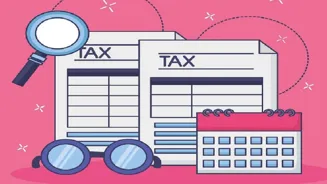The Lok Sabha on Monday passed the Income-Tax (No. 2) Bill, 2025, after Finance Minister Nirmala Sitharaman introduced the revised legislation earlier in the day. The new bill replaces the earlier Income Tax Bill, 2025, which
was tabled in February this year and officially withdrawn on August 8.
The updated bill seeks to overhaul India’s tax framework by replacing the six-decade-old Income Tax Act, 1961, with a modernised law aimed at simplifying compliance, incorporating digital taxation, and using technology and data analytics to expand the tax base.
Why Was The Earlier Bill Withdrawn?
While presenting the revised bill, Sitharaman said the government had accepted “almost all of the recommendations of the Select Committee”, along with suggestions from stakeholders to ensure the law’s intent is “conveyed more accurately”.
“There are corrections in the nature of drafting, alignment of phrases, consequential changes and cross-referencing. Therefore, a decision has been taken by the government to withdraw the Income Tax Bill, 2025, as reported by the Select Committee. Consequently, Income-tax (No. 2) Bill, 2025, has been prepared to replace the Income-tax Act, 1961,” according to the statement of objects and reasons.
Key Recommendations of Parliamentary Select Committee
The 31-member committee, chaired by BJP MP Baijayant Panda, submitted a 4,575-page report last month, making 285 recommendations, including 32 major changes to the draft bill.
Some of the principal suggestions include:
- A revised definition of “beneficial owner” to allow carry-forward of losses when individuals gain direct or indirect share benefits during a tax year.
- Reinstating the inter-corporate dividend deduction, absent in the original draft.
- A standard 30% deduction on income from house property (post municipal tax deduction), with pre-construction interest benefits extended to let-out properties.
Simplifying compliance for individuals
The panel proposed several taxpayer-friendly measures:
- Issuing ‘Nil’ tax deduction certificates.
- Allowing discretionary waiver of penalties for unintentional non-compliance.
- Facilitating refunds on delayed ITR submissions for small taxpayers.
- Providing clearer definitions of non-performing assets (NPAs) to reduce disputes between tax authorities and banks.
Other proposals
The committee urged precise definitions for “parent company” and stronger provisions for non-profit organisations and religious/charitable trusts, ensuring anonymous contributions do not affect their tax exemption status.
It also recommended removing all residual references to the 1961 Act to make the new code fully self-contained and resistant to legal ambiguity.












